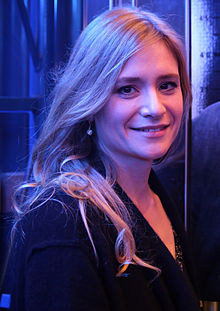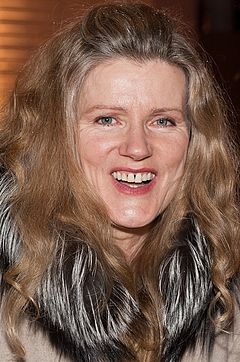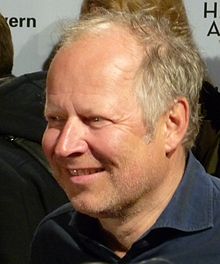Hannah Arendt (film)
Hannah Arendt is a 2012 GermanLuxembourgianFrench biographical drama film directed by Margarethe von Trotta and starring Barbara Sukowa. The film centers in the life of GermanJewish philosopher and political theorist Hannah Arendt. It is distributed by Zeitgeist Films in the United States, where it opened theatrically onMay 2013.
As the film opens Eichmann has been captured in South America. It is revealed that he escaped there via the rat line and with forged papers. Arendt, now a professor in New York, volunteers to write about the trial for The New Yorker and is given the assignment. Observing the trial, she is impressed by how ordinary and mediocre Eichmann appears. She had expected someone scary, a monster, and he does not seem to be that. In a cafe conversation in which the Faust story is raised it is mentioned that Eichmann is not in any way a Mephisto the devil. Returning to New York, Arendt has massive piles of transcripts to go through. Her husband has a brain aneurysm, almost dying, and causing her further delay. She continues to struggle with how Eichmann rationalized his behavior through platitudes about bureaucratic loyalty, and that he was just doing his job. When her material is finally published, it immediately creates enormous controversy, resulting in angry phone calls and a falling out from her old friend, Hans Jonas.In a night out on the town with her friend, novelist Mary McCarthy, she insists that she is being misunderstood, and her critics who accuse her of defending Eichmann have not read her work. McCarthy broaches the subject of Arendts love relationship many years ago with philosopher Martin Heidegger who had collaborated with the Nazis. Arendt finds herself shunned by many colleagues and former friends. The film closes with a final speech she gives before a group of students, in which she says this trial was about a new type of crime which did not previously exist. A court had to define Eichmann as a man on trial for his deeds. It was not a system or an ideology that was on trial, only a man. But Eichmann was a man who renounced all qualities of personhood, thus showing that great evil is committed by nobodies without motives or intentions. This is what she calls the banality of evil. ........
Source: Wikipedia






